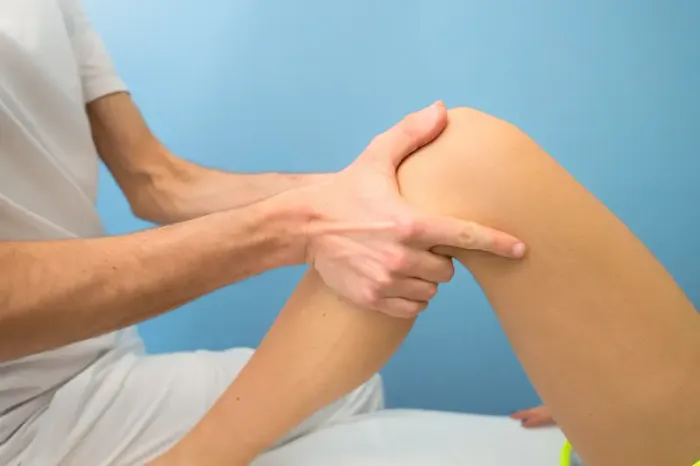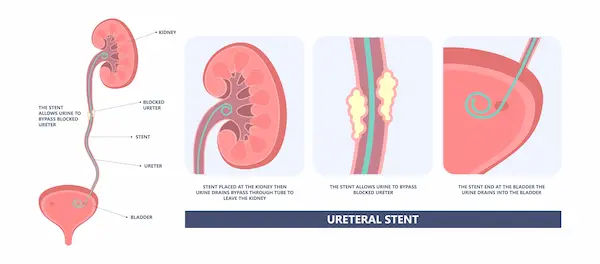Anterior Drawer Test Overview and Procedure
Know about the anterior drawer test, why it is done, result interpretation, procedure, and how to manage ACL injury. Learn how to manage the anterior drawer test with lifestyle tips.

Written by Dr. Mohammed Kamran
Reviewed by Dr. Dhankecha Mayank Dineshbhai MBBS
Last updated on 13th Jan, 2026

Introduction
If you’ve ever experienced knee pain or instability, your doctor may recommend an Anterior Drawer Test to check for ligament damage. This simple yet effective test helps assess the integrity of the anterior cruciate ligament (ACL)—one of the key ligaments that stabilises your knee joint.
In this article, we’ll explain what the Anterior Drawer Test is, why it’s done, how it’s performed, and what the results mean. We’ll also discuss how you can manage knee health and when to seek medical help.
What Is the Anterior Drawer Test?
The Anterior Drawer Test is a physical examination used to check for ACL (anterior cruciate ligament) injuries. The ACL is a strong band of tissue that connects your thigh bone (femur) to your shinbone (tibia) and prevents excessive forward movement of the tibia.
When the ACL is torn or weakened, the knee may feel unstable, making it difficult to walk, run, or pivot without pain. The Anterior Drawer Test helps doctors determine if this ligament is damaged.
Consult a General Practitioner for Personalised Advice
Why Is the Anterior Drawer Test Done?
Your doctor may recommend this test if you have:
• Knee pain after a sudden twist or fall
• Swelling or stiffness in the knee
• A feeling of instability (like your knee is "giving way")
• Difficulty bearing weight on the affected leg
This test is commonly performed after sports injuries, falls, or accidents that may have damaged the ACL.
How Is the Anterior Drawer Test Performed?
The test is quick and non-invasive, usually done in a clinic. Here’s what to expect:
1. Positioning: You’ll lie on your back with your knee bent at a 90-degree angle and your foot flat on the table.
2. Stabilisation: The doctor will gently hold your thigh in place to keep it steady.
3. Movement: They will then pull your shinbone (tibia) forward while keeping the thigh stable.
4. Assessment: If the tibia moves forward more than normal, it may indicate an ACL tear.
What Do the Results Mean?
It includes:
• Normal result: Minimal or no forward movement of the tibia.
• Abnormal result: Excessive forward movement suggests an ACL injury.
If the test is positive, your doctor may recommend further imaging tests like an MRI to confirm the diagnosis.
How Can You Manage an ACL Injury?
If you have an ACL injury, treatment depends on its severity:
1. Mild to Moderate Injuries (Partial Tears)
• Rest & Ice: Avoid activities that strain the knee and apply ice to reduce swelling.
• Compression & Elevation: Use a knee brace and keep the leg elevated.
• Physical Therapy: Strengthening exercises help restore knee stability.
2. Severe Injuries (Complete Tears)
• Surgery (ACL Reconstruction): May be needed for athletes or active individuals.
• Rehabilitation: Post-surgery physiotherapy is crucial for recovery.
Lifestyle & Prevention Tips
The lifestyle and prevention tips include:
• Strengthen leg muscles (quadriceps & hamstrings) to support the knee.
• Warm up before exercise to prevent sudden twists.
• Wear proper footwear for sports and avoid uneven surfaces.
When Should You See a Doctor?
Consult a doctor if you experience:
• Persistent knee pain or swelling
• Difficulty walking or standing
• A "popping" sound at the time of injury
• Frequent knee instability
Early diagnosis and treatment can prevent long-term joint damage.
Final Thoughts
The Anterior Drawer Test is a simple yet effective way to check for ACL injuries. If you’ve had a knee injury or feel instability, getting tested early can help in proper treatment and recovery.
Remember, knee health is crucial for mobility. Take care of it with the right exercises, precautions, and timely medical advice.
Consult a General Practitioner for Personalised Advice
Consult a General Practitioner for Personalised Advice

Dr D M Karthik
General Practitioner
4 Years • MBBS, Fellowship in Diabetes Mellitus, Advance certificate in Diabetes Mellitus, Derma Nutrition Certification
Visakhapatnam
Apollo 24|7 Clinic - Andhra Pradesh, Visakhapatnam

Dr Suseela
General Physician
5 Years • MBBS
Bengaluru
Apollo Medical Center, Marathahalli, Bengaluru

Dr. Vivek D
General Physician
4 Years • MBBS
Bengaluru
PRESTIGE SHANTHINIKETAN - SOCIETY CLINIC, Bengaluru

Dr. Gunashree V L
General Physician/ Internal Medicine Specialist
3 Years • MBBS
Bengaluru
Apollo Clinic, JP nagar, Bengaluru

Dr Syed Mateen Pasha
General Physician
2 Years • MBBS
Bengaluru
PRESTIGE SHANTHINIKETAN - SOCIETY CLINIC, Bengaluru
Consult a General Practitioner for Personalised Advice

Dr D M Karthik
General Practitioner
4 Years • MBBS, Fellowship in Diabetes Mellitus, Advance certificate in Diabetes Mellitus, Derma Nutrition Certification
Visakhapatnam
Apollo 24|7 Clinic - Andhra Pradesh, Visakhapatnam

Dr Suseela
General Physician
5 Years • MBBS
Bengaluru
Apollo Medical Center, Marathahalli, Bengaluru

Dr. Vivek D
General Physician
4 Years • MBBS
Bengaluru
PRESTIGE SHANTHINIKETAN - SOCIETY CLINIC, Bengaluru

Dr. Gunashree V L
General Physician/ Internal Medicine Specialist
3 Years • MBBS
Bengaluru
Apollo Clinic, JP nagar, Bengaluru

Dr Syed Mateen Pasha
General Physician
2 Years • MBBS
Bengaluru
PRESTIGE SHANTHINIKETAN - SOCIETY CLINIC, Bengaluru

.webp)


